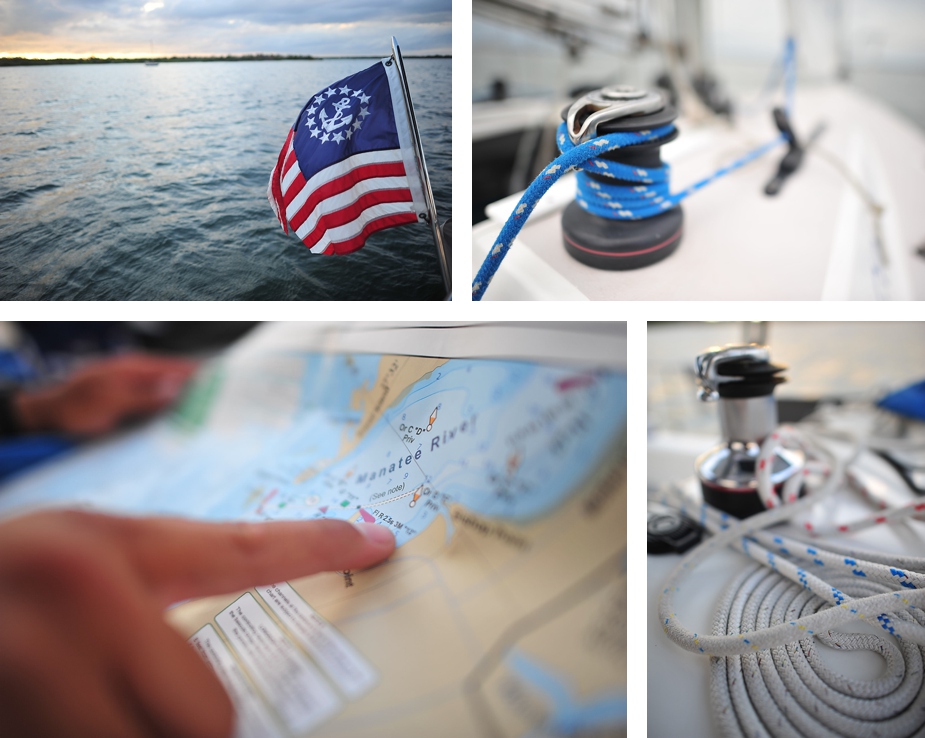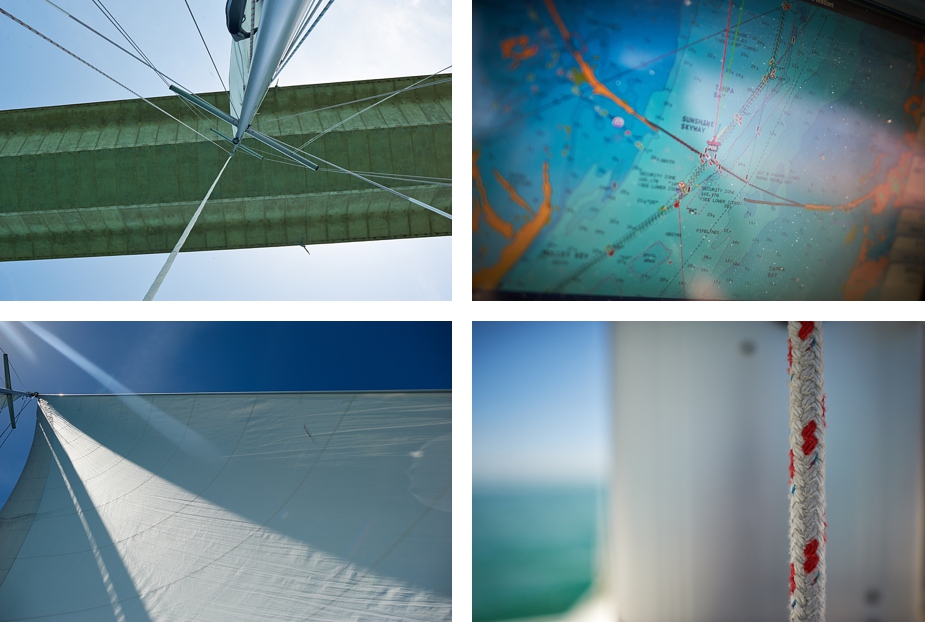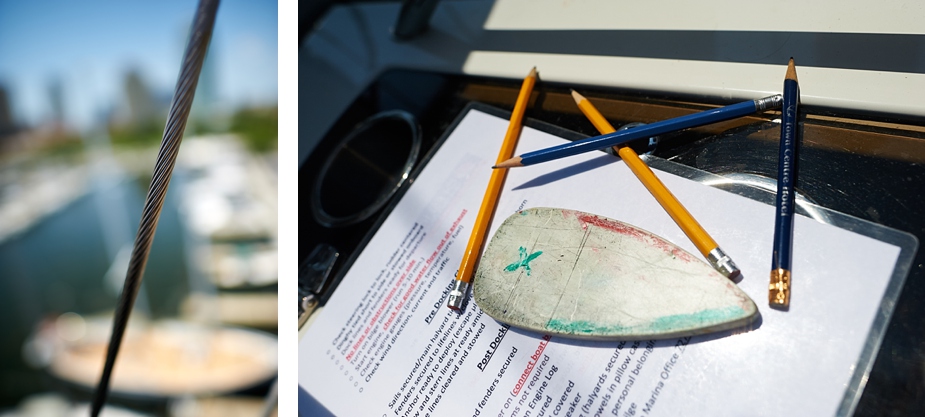Going Pro pt 6: Take a Creative Sabbatical

Alternative periods of activity and rest is necessary to survive, let alone thrive. Capacity, interest, and mental endurance all wax and wane. Plan accordingly.
— Tim Ferris, The 4-Hour Workweek
I’m continuing with Part 6 of my on-going series on Going Pro, moving full-time photography. If you are just joining us, click below to catch up on the series!
Part 1: Take the Big Step
Part 2: Delay Instant Gratification
Part 3 : Knowing When to Make the Jump
Part 4 : Make Amateur Photography Pay
Part 5: Pimp the Work You Want to Shoot
The harder you work the brain, the stronger it becomes. Like a muscle, only through rest, it becomes sharper, more agile. Yet it needs just that: REST. And a key to happiness, I’ve found, isn’t that far away while learning to sail with Offshore Sailing School.
That was six months ago.

Photography used to be my hobby since I went full-time in April 2013, almost 8 years of a steady progression of business building: learning technicals, honing my style and workflow, building 22 branding tools in my marketing arsenal, retooling the kern-photo website for SEO, focusing on streamlined business systems to manage taxes & accounting, moving into a new Minneapolis market, acquiring creative tools and gear, and building portfolio of happy clients. I’ve enjoyed the ride along the bumpy road and look forward to the lifestyle of working-from home, choosing my own schedule, not traveling for another company as much, and being involved in my family and community. In other words: My Impossible Dream, realized.
However, I knew I needed to replace a once-upon-hobby/obsession with something new. After spending 7 years on the water almost daily in high school and college rowing, I drew on the inspiration of getting more in touch with the water, literally. Denver is’t exactly a maritime environment, and it’s been an interest simmering on the back-burner for a decade. Now, it’s time to toss in the pasta and start cookin’.
For this to work, however, I needed to create a calm in the storm months prior to making the leap. How? I disconnected for one week to learn something brand new.
You should too.

When was the last time you took a real break? Ever think, “I’ve always wanted to do _______.” Cube dwellers and at-home creatives, consider your strategic renewal. After all, we’ll accomplish more in 11 months working than we will in 12 months.
If you are learning to draw the fine line between a vacation and an important work trip, consider the sabbatical. For starters, Chase Jarvis offers advice on his blog on how to Reboot, Refresh, and Refocus as well as Stefan Sagmeister’s TED talk, The Power of Time Off. Fervor and passion isn’t the only reason we get out of bed in the morning. Sure, the fear of not paying the bills will keep me up at night. Yet to be creative in the long-term, we need to be fresh. There are days we are overwhelmed just trying to our head above water.
Make it happen: thinking about your sabbatical, NOW! To kickstart the momentum, I share my action list of next steps.
My practical advice for those thinking of a sabbatical:
12. Reboot your brand. Consider this an opportunity to re-write the books on your professional brand. You can re-start and no-one will really notice or care (not that it matters), but you can bring in a fresh dose of enthusiasm and your clients will notice. It starts with your ability to commit to yourself to work smarter, not just harder.

11. Plan in advance. Commit so there’s no backing out. The best way? Pay a large up front deposit and recruit a friend to join you to do the same. If there’s hesitation, you’ve got a support network already in place (your spouse won’t want to relate to this problem). I started the planning 120 days in advance.

10. Gain support. You’ll need support from your spouse and family to make this happen. Offer up double-time for normal tasks or the compensation (this includes owning up to poop scooping, laundry tasks, and other burdensome chores just to break even). And if you can include spending time with family as part of your sabbatical plan, do it!

9. Budget accordingly. You don’t want debt to taint your experience. Returning without guilt or shame will be your responsibility. You may need to sell off equipment and do some exchange for services (haircuts, massages), but as Ben Franklin says, “A penny saved is a penny earned.” Gaining perspective on the horizon is priceless.
8. Get outside. Fresh air, a horizon, and a perspective. The human condition needs this if not only to become a better person.


7. Laugh More. Change sucks, and you are facing a Top 5 stressor in life. Recognize it. If you avoid ping-pong / shuffleboard / kickball, listen up: you could benefit from the unstructured play kids love. Learning to loose at trivial games builds character and confidence. If you can’t win everything, you might as well enjoy laughing.


6. Challenge yourself. This goes without saying. There’s a big difference between ‘taking it easy’ vs ‘scaring yourself.’ Two schools of thought for a vacation, but not a sabbatical. You need to be challenged beyond expectation with measurable results. This might mean passing certification requirements, a test, or mentor approval. Only you can decide. Sailboats have been around far longer than computers. Yet there was no escaping technology. The state-of-the-art equipment on board blew my mind. However, on several drills our sailing instructor killed all navigational power and we had to rely on charts, compasses, wind, and keen eyes to navigate. It was nerve-racking, but incredibly rewarding!

5. Learn something NEW. Learning is a skill that can be learned. The more you try to learn, the easier it becomes. Visual, auditory, tactile… we all learn differently. Yet learning is a skill. If you were schooled in an Liberal Arts education, this is your MVP skill you learn along with effective communication and critical thinking. Savor it.

4. Be humbled. Making mistakes is apart of any learning process. As a student, we are allowed to make certain mistakes. Relish it while you can. Starting from ‘scratch’ gives you chance to master the fundamentals of something new. Lessons learned may be directly applicable to running a business or (re)building a career. Perhaps the captain of this boat need a sabbatical (note the lounge chair).

3. Make a new friend. A quality friend. See #10. They will help you along the way since they have a vested interest and can serve as a measure of accountability. Jeff and I connect frequently since our sailing experience and we help each other stay accountable for life goals.

2. Document your experience. Take notes and photos each day. Carve that time out each day. Note significant personal experiences, inspirations, and motivations. They will become emotional gold in the times when you have only dimes in creative savings. Those memories will recharge you when you need it.

1. Work Hard, Play Hard. This mantra can help to balance work vs lifestyle. If when asked “What do you do for fun?” if you can’t provide at least three things you enjoy (work doesn’t count), perhaps you do not play enough. Playing is taking a brand new sailboat out overnight in Tampa Bay and coming back safe and sound 🙂




LESSONS LEARNED
I remind myself, months later: being self-employed means carving time for freedom. This isn’t easy when there’s always something to fill the day. Yet, I found there’s a sweet reward. Months after completing the sailing school, I still feel the difference a week on a sailboat makes. Perhaps it has something to do with learning something entirely new… something out of my comfort zone which tests intuition of appreciating the power of wind, reflexes of learning a new language, and savoring finer things in life brought only by returning to the basics. As a right-brain dominate guy, I don’t mind the occasional vacation to the left brain. Memorizing parts of the boat, understanding rights of way, determining time to travel between two points without my Google Maps app strengthened my brain. And of course climbing to the top of a mast put me outside my comfort zone, but in a good way.

The effects? I’ve become not only a better photographer from my sabbatical which I appreciate even six months later (unlike that 90-minute massage). I also fine-tuned my art of planning & logistics coordination, broke through self-imposed limits, and gained a renewed sense of confidence… all by learning something new. The bonus: a lifetime of awesome memories!






Pingback: Winterizing your Photo Business for the Slow Season - A Camera and a Dream
Pingback: The Hit List: 12 Top Posts from 2013 » Kern-Photo - Kern-Photo
Pingback: Going Pro series pt 5: Pimp the Work You Want to Shoot » Kern-Photo - Kern-Photo
Pingback: Back to work... - Kern-Photo - Kern-Photo